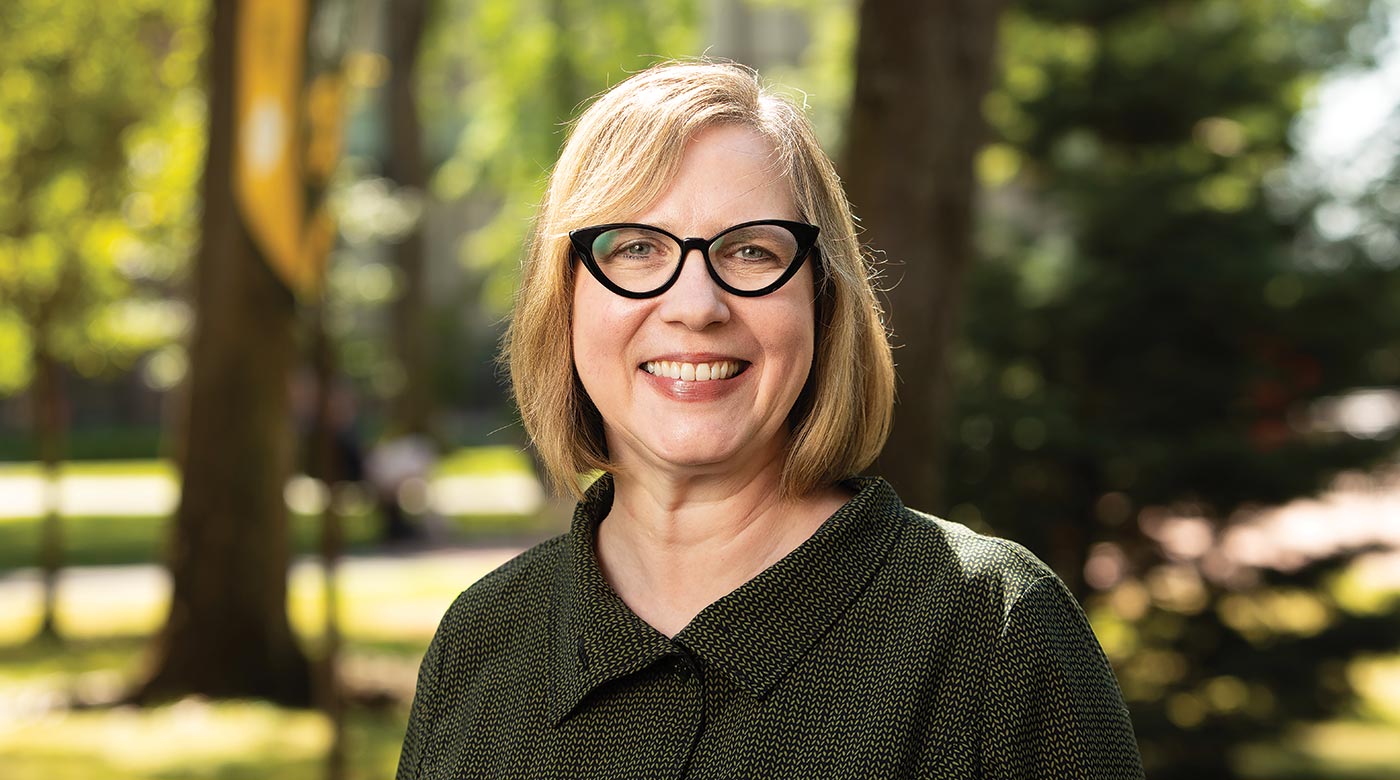Five Questions: Stephanie Johnson, Dean of the College of Liberal Studies

What does liberal studies mean to you?
To be liberally educated quite simply means to be educated broadly and generously, without restriction and the College of Liberal Studies is at the heart of this education at PLU. The foundation of liberal studies extends back to ancient Greece and the training of the mind not only for the benefit of the individual but also for civic life. A liberal education develops the minds of students to engage in lifelong learning both with and for others. That’s what our college is committed to offering every student who enters our classrooms and campus spaces.
How does a liberal studies education help students succeed and make a difference in today’s rapidly changing world?
Students of liberal studies learn how to learn. In other words, while at PLU, they develop the skills of processing and evaluating information, thinking critically, constructing knowledge, and reflecting and acting ethically. Students also learn how to continue to develop these skills over a lifetime and how to adapt them to each new situation in which they find themselves. That capacity for lifelong learning and the development of transferable skills makes our students prepared for the challenges of our complex and changing world.
How does PLU’s College of Liberal Studies live out the university’s mission of inquiry, service, leadership, and care?
Each program in the College of Liberal Studies embodies PLU’s mission in specific ways. For example, philosophy prepares students to build logical arguments and prompts them to examine their values and obligations. Political science makes students aware of various systems of power and can inspire them to public service. All of our programs lead students to consider how our shared humanity bears or should bear on institutions, policies, values, stories, and relationships. That means that every day, our faculty members educate students to ask thoughtful questions, serve, lead, and care.
From climate change and social justice to global conflicts and ethical dilemmas in AI, our world faces multifaceted challenges. How does a liberal studies education at PLU empower students to face pressing societal issues?
Educating students broadly without restrictions means introducing students to some of humanity’s most significant challenges. Our faculty members model questions to ask about these challenges, and they guide students through possible answers, arguments, and counter-arguments together as a means to strengthen each student’s own critical voice and empower them to engage on their own beyond the classroom.
We value interdisciplinary study and the examination of difficult problems from varied perspectives as well. The College of Liberal Studies offers a range of interdisciplinary programs in which students address such problems every day through multiple critical lenses, such as in the Gender, Sexuality, and Race Studies program and the Native American and Indigenous Studies program. We love to see students double majoring, too, so that they can bring their own growing expertise across disciplines and discover interconnections. Many of our major areas of study are sized so that students can double major without difficulty, and we encourage students from other colleges at PLU to explore their interests through a double major with our programs.
What career paths do liberal studies graduates pursue, and how does this education prepare them for lifelong learning and adaptability?
When a student receives a liberal studies degree, they are prepared for far more than one career path or opportunity; they have the skills and the knowledge to discern various paths and to adapt to the one (or many) to which they are drawn over their working lives.
Our graduates are prepared to seek paths in business, non-profit organizations, education, law, and many other sectors. This makes a degree in liberal studies immensely practical.


